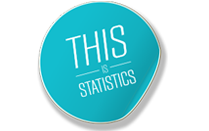Course Descriptions
On This Page
STA 119 Statistical Methods
4 Credits, Fall and Spring Semesters
Covers topics in descriptive statistics, probability, inference, and experimental design, all of which are put together to draw conclusions from uncertainty through analysis of experimental data. Although a general statistical methods course, the material (through examples) is geared towards sciences majors, especially those in the health sciences. The underlying reasoning behind the techniques will be explored.
STA 301 Introduction to Probability
4 Credits, Fall Semester (LEC/REC)
Provides students with probability and distribution theory necessary for the study of statistics. Topics include axioms of probability theory, independence, conditional probability, random variables, discrete and continuous probability distributions, functions of random variables, moment generating functions, the Laws of Large Numbers, and the Central Limit Theorem.
STA 302 Introduction to Statistical Inference
4 Credits, Spring Semester (LEC/REC)
Introduces principles of statistical inference. Introduces and develops classical methods of estimation, tests of significance, the Neyman-Pearson Theory of testing hypotheses, maximum likelihood methods, and Bayesian statistics.
STA 403 Regression Analysis
3 Credits, Fall Semester
Covers regression analysis and introduction to linear models. Topics include point estimation, confidence intervals, hypothesis testing, simple linear regression, multiple regression, analysis of covariance, and nonlinear regression. The course uses statistical software and emphasizes hands-on applications to data sets from a variety of settings. Prerequisite: STA 301 and STA 302
STA 404 Design of Experiments
3 Credits, Spring Semester
Covers statistical methods for planning, conducting, and analyzing experiments to optimize a process. Topics include point estimation, confidence intervals, hypothesis testing, ANOVA models for 1, 2, and k-way classifications, multiple comparisons, randomized complete block designs, Latin square designs, and factorial designs. The course uses statistical software and emphasizes hands-on applications to data sets from a variety of settings.
STA 411 Stochastic Processes
This course is an introduction to the fundamental ideas of stochastic (or random) processes. The main topics we will study include classical gambling problems, random walks, Markov chains, Poisson processes, birth and death processes, queues, and reliability and renewal. Selected other topics, such as branching and Brownian motion, may also be included if time permits.
STA 415 Distribution Free Inference
This course is an introduction to distribution free inference, which is an area of statistics in which little or no assumptions are made about the distributional form of the population from which the data are sampled. Many authors use distribution free and nonparametric interchangeably, although in the latter case, the population is not assumed to fit any parametrized distribution.
STA 431 Methods of Survey Samples
STA 461 Applied Time Series Analysis
This course is an introduction to time series, which are ordered series of data points collected over time. Sampling adjacent points in time often leads to correlated data, which restricts the applicability of many conventional statistical methods (most of which assume the data are independent and identically distributed, or IID). The main topics discussed in this course are: characteristics of time series, correlation, stationarity, time series regression, exploratory data analysis, ARMA models, and ARIMA models. Time permitting, there may also be some other special topics included.












